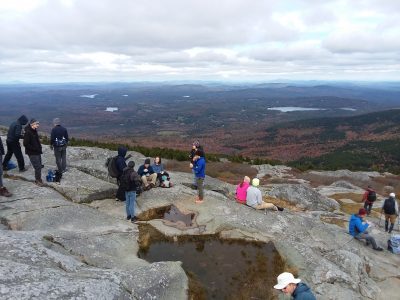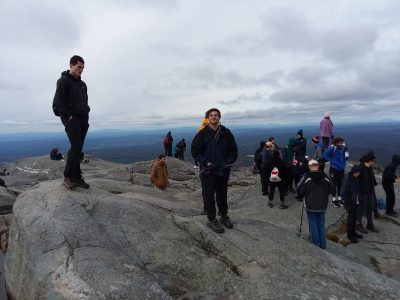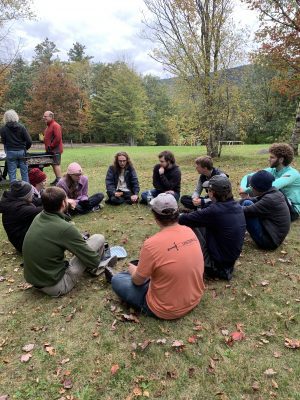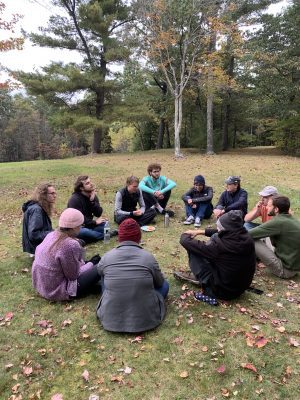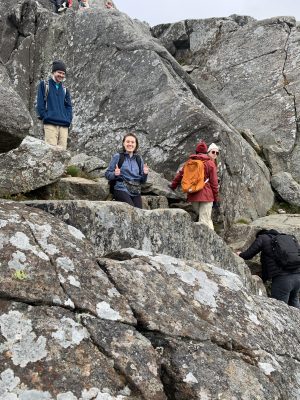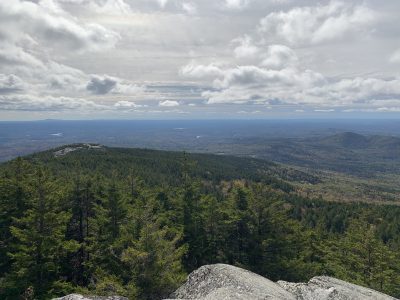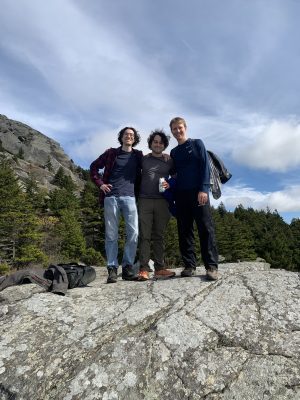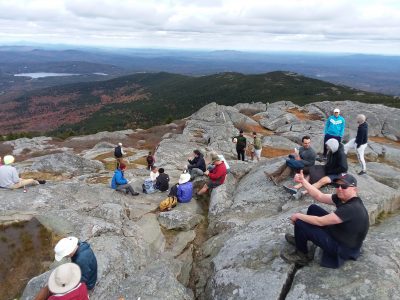Elaina Hancock – UConn Communications
After nearly 20 years of being out of commission, UConn’s East Road Observatory is back up and running. The observatory will be renamed in a ceremony on October 21st where the team that restored the facility will demonstrate its capabilities. (Contributed photo)Professor Cynthia Peterson was the first woman on the UConn physics faculty, and over the course of her 49 years at the University, she was known for her enthusiasm and passion for teaching and outreach and was always generous with sharing her knowledge. She was also known for her pursuit of the installation of an observatory j
Less than two weeks after touring the inside of the observatory in January of 2023, the team, including Allen Hall (pictured), began taking apart the old telescope and started working on restoring the facility.ust off campus in Storrs, and in 1970 she and machinist Richard Mindek built the East Road Observatory.
Sadly, after a few decades of use, the observatory eventually fell out of repair and was largely forgotten until recently. A team, including employees, students, researchers, an alum, and an award-winning telescope builder, have breathed new life into this important piece of research equipment and UConn history.
In the fall of 2022, Physics Assistant Professor-in-Residence Matthew Guthrie learned about the observatory and started to wonder about its history.
“When I learned that it was no longer in use, I asked around to see why and how we could get it up and running again. Getting it fixed up was not in my skillset, so I didn’t think too much more about it,” says Guthrie. “Then Allen Hall, a local award-winning telescope designer, emailed our department chair out of the blue in January. He wanted to donate a telescope that he built. We connected and I told him about the derelict observatory, about a week later we were taking it apart.”
Guthrie reflects that the facility was in rough shape, and Hall later admitted he thought it was a lost cause, but they stuck with it. Now, after months of repairs, troubleshooting, and cleaning out critters and junk, the observatory is back in action and will be formally renamed at a ceremony scheduled for Tuesday, October 24th where Guthrie says they plan to demonstrate its upgraded capabilities.
Guthrie says jumping straight into the restoration has been an amazing and collaborative learning experience.
“I’m learning as much as I can from him (Hall), and his mechanical and technical skills are exactly what we needed to get this place restored to its former glory, and given the work and upgrades we’ve already made, they’re even better than the original design.”
All the while, Guthrie has tried to find out as much as he can about the observatory’s history. For instance, there is also an additional cement pad and utility hookups that were not previously used, and there are hopes that the facility can be expanded in the future to include a classroom, says Guthrie.
An alum who worked in the dome as a student and has also helped with the restoration effort, Dennis Perlot ’82 (ENG), saw the logbook and remembered the last, ominous entry dating from 2009 which read: “Dome stuck, mount frozen.” Perlot says the now-lost logbook also contained entries about asteroids, comets, and other discoveries.
Here Guthrie is working on reassembling the telescope. He says, “My graduate and postdoc work was mostly theory-based, so being back in a place where I can literally get my hands dirty again makes me happy, and seeing the results of our labor has been rewarding.” (Contributed photo)Other challenges have grown up around the observatory, says Guthrie, because when it was built, the site was likely in the middle of an empty field. Decades later, the field now hosts a patch of trees and agricultural research fields.
Guthrie says the agricultural research farm staff, including Farm Manager Travis Clark, has been very supportive in helping to remove some of the trees when they can. Though people working on the farm have wondered what the strange building was for a while, now it presents an opportunity for new collaborations. Guthrie says one plan is to plant a “moon garden” around the building with night-blooming flowers.
“Getting the facility back up and running has been an amazing and rewarding experience. This will be a force for good in the department and at the university,” says Guthrie. “Our department has big-shot astrophysicists who work on JWST and Hubble. They like their telescopes to be in space, but having a telescope here is a powerful thing.”
UConn researchers have access to a network of telescopes around the world but time on the scopes requires fees after submitting proposals justifying the need for research time on the scopes. Now, Guthrie says students and researchers can get some hands-on experience with an earth-bound scope right here in Storrs.
“There’s nothing more fun than going through the theory in class and then seeing what it looks like with your own eyes and making that connection. That’s one of my basic philosophies of being a teacher, you can do all the theory that you want, and you probably can be pretty good at it. But if you can’t apply it, and see what that theory does in real applications, there’s no point. Things like this observatory are great tools for that building perspective.”
The team repaired, cleaned, and upgraded the observatory and it is better than before.Upgrades to the facility include GPS for tracking the stars, enabling different kinds of research the observatory was not capable of previously, and Guthrie hopes to set up the system so it can be controlled remotely.
“With tracking, the scope rotates just a little bit at a constant rate to track along with the motion of the stars and that lets us do real science because you must look at something for a long time to really study it. One of the things that we’re excited to do is exoplanet studies where you need to take a few hours of exposure to accurately measure how much light you’re getting from the star so that any variability in that light you can attribute to a planet passing between us and the star. Doing that requires accurate tracking.”
At sunset on October 24th, following the short opening and renaming ceremony, Guthrie says they will fire up the new 16-inch telescope for an exploration of deep sky objects, planets, and (if visibility allows), the Apollo 15 landing site.
